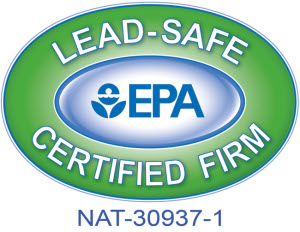Lending
Here are some frequently asked questions about the lending process. If your question in not answered here, please don't hesitate to contact us so that we may help you resolve any questions you may have.
Why is it important to be pre-approved before shopping for a home?
Very simply put, a pre-approval letter lets you know the range in which you should be looking. There is nothing more frustrating to you, the buyer, than to come across your dream home, only to find that itís beyond your budget. A pre-approval letter from your lender is essential to have when making an offer on a home. This is a solid way to make the seller feel a little more at ease that the person making an offer really can afford the home. The biggest risk to a seller is pulling a house off the market because they think their home has been sold, just to have it fall through 30 days later after losing valuable market time. This is also the reason for an earnest deposit. Typically, 1% of the purchase price is acceptable. Another reason for a pre-approval is that it completes many of the necessary steps in closing on the home, such as verifying income, assets and financial stability. This will help ensure a quick, smooth closing process.
What closing costs are associated with getting a loan?
Closing costs will vary from lender to lender and may change based on loan program and lock-in term. The main closing costs consist of the costs for the appraisal, processing, underwriting, credit report, tax service, flood search, title insurance, loan closing, real estate closing, recording fees, plot plan and termite inspection. There may be additional costs to originate the loan or buy down the rate as well. Some lenders may pay for or omit some or all of these fees depending on the type and structure of the mortgage. Most of the closing costs are paid to a third party for the service they provide during the transaction.
Will you guarantee the closing costs you are quoting me?
Many lenders will quote you closing costs but will not honor them at the closing table. This is very common with out of town or internet lenders who donít know the local market costs. Such as what an appraiser charges here as opposed to one in Florida. It is important that you find a lender that will do the research based on your transaction prior to quoting you closing costs. A true professional will guarantee that once you pick a program and lock it in, your costs will not change.
What are the prepaid items and escrow fees, and are they included in the closing costs?
There are two types of costs when purchasing a home. The closing costs are the costs of getting the loan. The other is the pre-paid items or Escrows, which are the costs of acquiring the property. Most homeowners will set up an escrow account to pay for home owners insurance, property taxes, and mortgage insurance if applicable. Typically pre-paid interest falls into the escrow category as well because it is not a cost of getting the financing but a cost of having a mortgage. Generally a years worth of homeowners insurance is due at closing and any taxes that are reimbursable to the seller for the time they have paid but will not live in the home. Then there are usually a few months of insurance and several months of taxes put into the escrow account. The number of months will vary depending on the first payment due date and when the taxes are due. Usually two to three months of insurance and four to eight months of taxes should be expected when setting up the reserve account.
Many lenders will quote these numbers to you separately. The main reason is the closing costs will vary from one lender to the next. This is what youíre comparing. The taxes and insurance are not charged by the lender and will most likely be the same regardless of who you do your mortgage with. However, make sure you get both sets of numbers so youíre not left surprised later in the process.
Many lenders will quote these numbers to you separately. The main reason is the closing costs will vary from one lender to the next. This is what youíre comparing. The taxes and insurance are not charged by the lender and will most likely be the same regardless of who you do your mortgage with. However, make sure you get both sets of numbers so youíre not left surprised later in the process.
What is a good faith estimate, and should I receive one from my lender?
The good faith estimate is the lender's breakdown of the costs associated with the mortgage. It gives you an itemized detail specific to your transaction. RESPA (the Real Estate Settlement Procedures Act) requires lenders to provide borrowers a good faith estimate within three business days of application. It does not require lenders to provide estimates to those who do not apply. Some lenders will give you one upon request, but keep in mind a good estimate is only possible after you go though the application process and the lender knows what type of credit and loan programs that you qualify for.
Will you guarantee the rate you are quoting me?
Rates change on a daily basis. Sometimes it can change on an intra-day basis. When you call for a rate quote it is usually only good until the market changes or until you lock it in. Once you lock it in, you should ask for a lock in confirmation so you have on paper what your rate will be. Once locked in, that rate should remain good as long as you close within the specified lock in period. For example, if you lock in a rate for 30 days, you must close within 30 days. Otherwise you may be subject to additional costs to extend the lock or lose your lock and be subject to a different rate.
What is the difference between the interest rate quoted and the APR?
The interest rate is the rate of interest you will pay on what you are financing. The APR or Annual Percentage Rate is a number that consists of your interest rate plus certain closing costs and mortgage insurance if applicable.
The APR was supposed to be used to level the playing field and put the true costs of the loan into one simple number to compare to other loans. Such as if you compare a 30 year mortgage from one lender who might charge an origination fee to that of another lender who might have lower closing costs but a slightly higher interest rate. The APR might point you in the right direction of which one might cost you less over the life of the loan. The APR is not used to figure out your monthly payments.
The APR was supposed to be used to level the playing field and put the true costs of the loan into one simple number to compare to other loans. Such as if you compare a 30 year mortgage from one lender who might charge an origination fee to that of another lender who might have lower closing costs but a slightly higher interest rate. The APR might point you in the right direction of which one might cost you less over the life of the loan. The APR is not used to figure out your monthly payments.
How will I know which product works best for me?
The answer to this question is as unique as the individual. A good lender will ask questions early in the application process and present you with options that may fit your needs. If the lowest payments is what your looking for, and interest only arm may be the best option. If you want to build equity as quickly as possible, a 10, 15 or 20 year term might help you out. If you are someone who moves or relocates every two years, a three-year ARM might be the best product. Most people donít realize a 30-year fixed rate mortgage is one of the most expensive products on the market. You may be throwing away $1000ís on the wrong mortgage.
How long does it take to close my loan?
This is a loaded question. Most lenders will strive to close on the date that is negotiated between the buyer and the seller and put on the purchase agreement. Some loans such as FHA and VA loans may take a little longer to underwrite and if there are any appraisal issues, it may slow the process down dramatically. With motivated individuals, a conventional loan can be closed within a few days. This is assuming the appraiser, title company, surveyor, termite inspector, insurance agent, realtors and borrowers all work together. Most of the time a week or two is much more appreciated by all the parties involved.
How should I choose which lender is right for me?
We have strong relationships with several lenders, based on wonderful experiences. You should choose a lender that is honest with you and is someone you can trust. You want someone who is experienced in the industry. It is a good idea to compare two or three lenders' rates and closing costs. You want to work with a lender that will offer you guaranteed rates and closing costs when you lock in. If they wonít guarantee what they quote you when you lock in, it may end up costing you more than you realize when you get to closing.

- Home
- Buyers
- Renters
- Agents
- About Us
- Free Resources
- Blog
- Contact Us
© 1999-2011 Landmark Group | 2702 Douglas, Omaha, NE 68131 | Phone: 402.553.8111 | Fax: 402.553.8308
Property Management - Sales and Leasing for Residential and Commercial Real Estate


